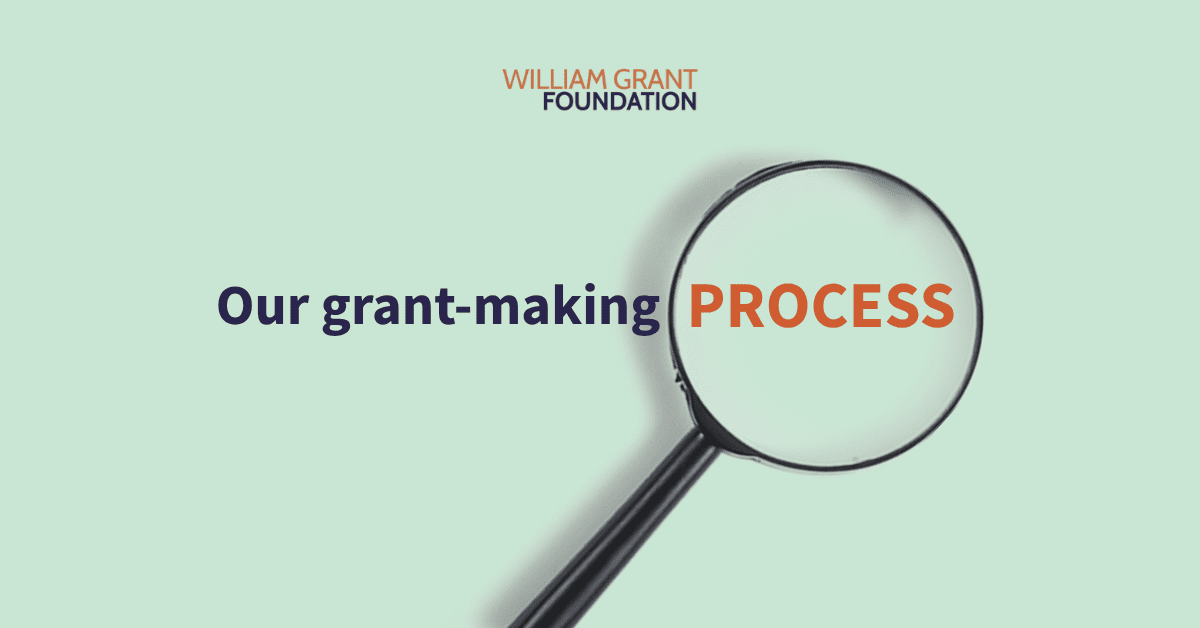
“The process from proposal submission to grant award felt slightly unclear at points.”
This was one of the pieces of feedback we recently received from our funded partners, and we thought it was worth addressing directly.
I’ve been applying for funding in Scotland for 25 years, working across areas like community health, culture, youth, and capital development, in both urban and rural settings. I’ve likely applied to nearly every funder available to Scottish charities and social enterprises – which gives me a valuable perspective in my current role as Partnerships and Learning Manager here at the William Grant Foundation.
This feedback from a grantee really resonated with me. Working at the Foundation has given me a clear understanding of how our process works, but I’ll be honest – it might not always be so clear to those engaging with us for the first time, especially if you’re more familiar with open funding programmes with set dates for deadlines and decisions.
Identifying and inviting potential partners
Firstly, it’s important to note that we are an invitation-only funder, using our networks and research to identify potential partners. Every funding relationship begins with a conversation and we spend time getting to know an organisation before deciding if we will invite a proposal for funding. This approach might be different from some funders, but we believe it helps us to make more informed decisions and have more time to focus on partnerships that are aligned with our interests and approach.
This recent article by IG Advisors, In defense of no unsolicited applications, makes thoughtful points about this approach to grant-making. I identified with their reflections that a proactive approach can help funders build deeper, more meaningful relationships with grantees and ensure that they are adding the most value with their funding. For us, it also helps focus our time and energy where they can have the greatest impact, rather than thinly spreading resources responding to a wide range of requests.
Responding to unsolicited enquiries
That said, we do welcome hearing from anyone whose work aligns with our interests – especially if it helps us learn or introduces us to promising or effective initiatives we might not otherwise come across.
Every enquiry that comes into our inbox is carefully reviewed. If there’s clear alignment with our interests, we may explore it further to learn more and we do sometimes invite funding proposals from organisations that contact us like this, though this is the exception rather than the norm. Sometimes, budget constraints or our existing pipeline of opportunities mean we can’t take an opportunity forward at that time, even if it’s a good fit.
Here is an illustration of how that breaks down.
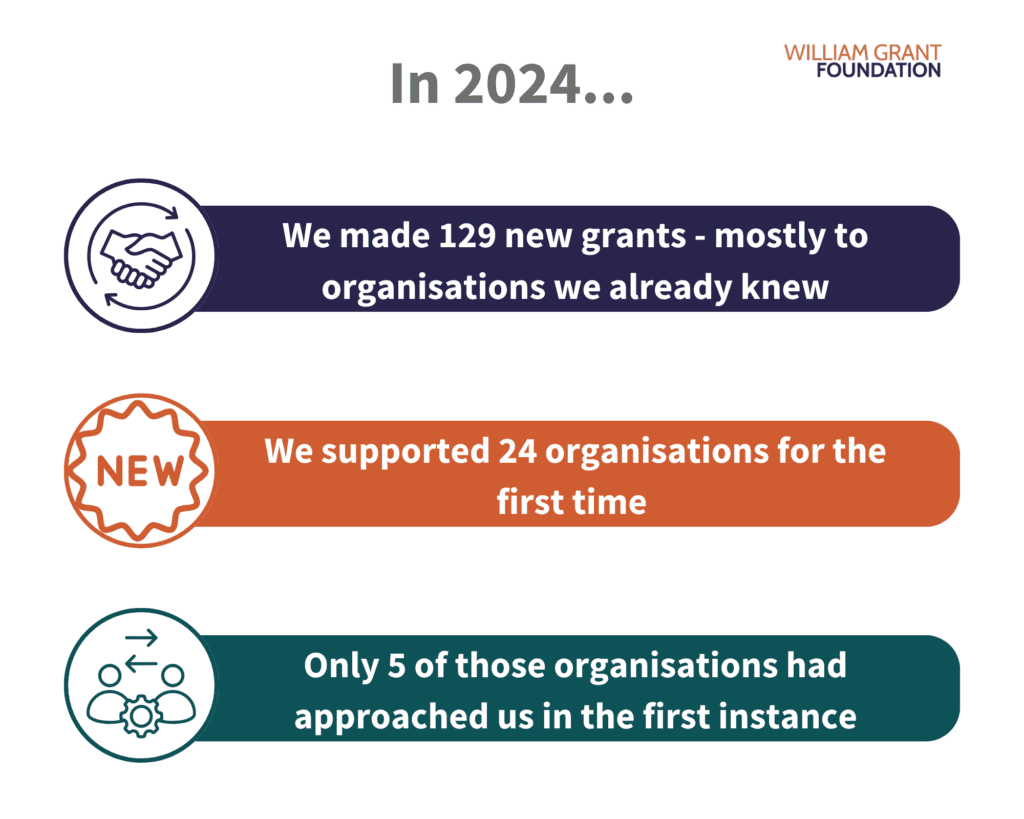
Exploring new funding opportunities
Decisions about most of our grants are made by one of four ‘giving groups’ – you can read more about our structure and governance here.
Each group is responsible for one of our key themes and they all operate a little differently, with varying structures and meeting schedules. The groups meet approximately quarterly, and three of them also have subgroups on specific focus areas that meet in between. Their work is an ongoing mix of exploring new opportunities, making decisions on grant awards, learning from our existing partners, reflection and strategy development. So, for us, grant-making is a rolling process that doesn’t operate to fixed deadlines or timescales.
Here’s a simplified outline of how it works when we’re considering a new funding opportunity:
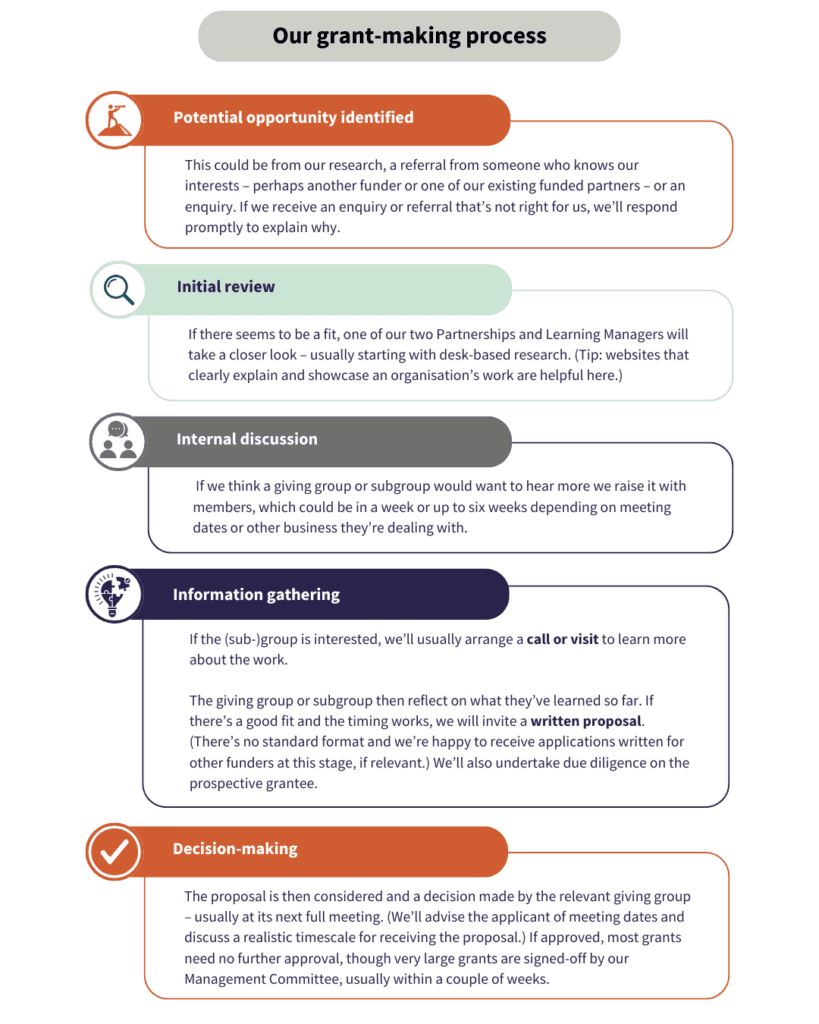
Being clear and responsive
Our typical process does involve a few rounds of information gathering and review, so can take up to a few months to proceed from initial investigations to a decision – occasionally longer. However, we also try to make it proportionate and recognise that sometimes acting with urgency is necessary if a grant is to be of most benefit to the recipient. Not having a rigidly prescribed process means we can tailor it to expedite this, if necessary.
Throughout, we aim to operate in an open and trusting way (you can read more about what this means to us here). This means we aim to keep prospective partners informed about next steps and likely timeframes.
Valuing feedback
We hope this gives you a clearer understanding of our grant-making process. Feedback is crucial to us, as it helps us improve how we work and communicate. The comment at the start of this blog came via one of the anonymous surveys we ask our funded partners to complete at different points during our relationship. But we welcome comments and suggestions from anyone who engages with us – whether we can fund you or not. Feel free to get in touch at foundation@wgrant.com.
Having spent thousands of hours completing funding applications, my feeling is that this approach is one that better respects people’s time. It has been a pleasure to be part of a Foundation that is genuinely interested in learning more about its areas of interest and how it can best contribute to meaningful change.
Jane has over 25 years’ experience in community development, social enterprise and funding in Scotland, and works as a freelance consultant and mentor to charities and community organisations. She’s currently working with the Foundation as Partnerships and Learning Manager, leading on our Scottish Culture and Heritage and Health and Social Causes themes whilst Rowan Boase is on maternity leave.
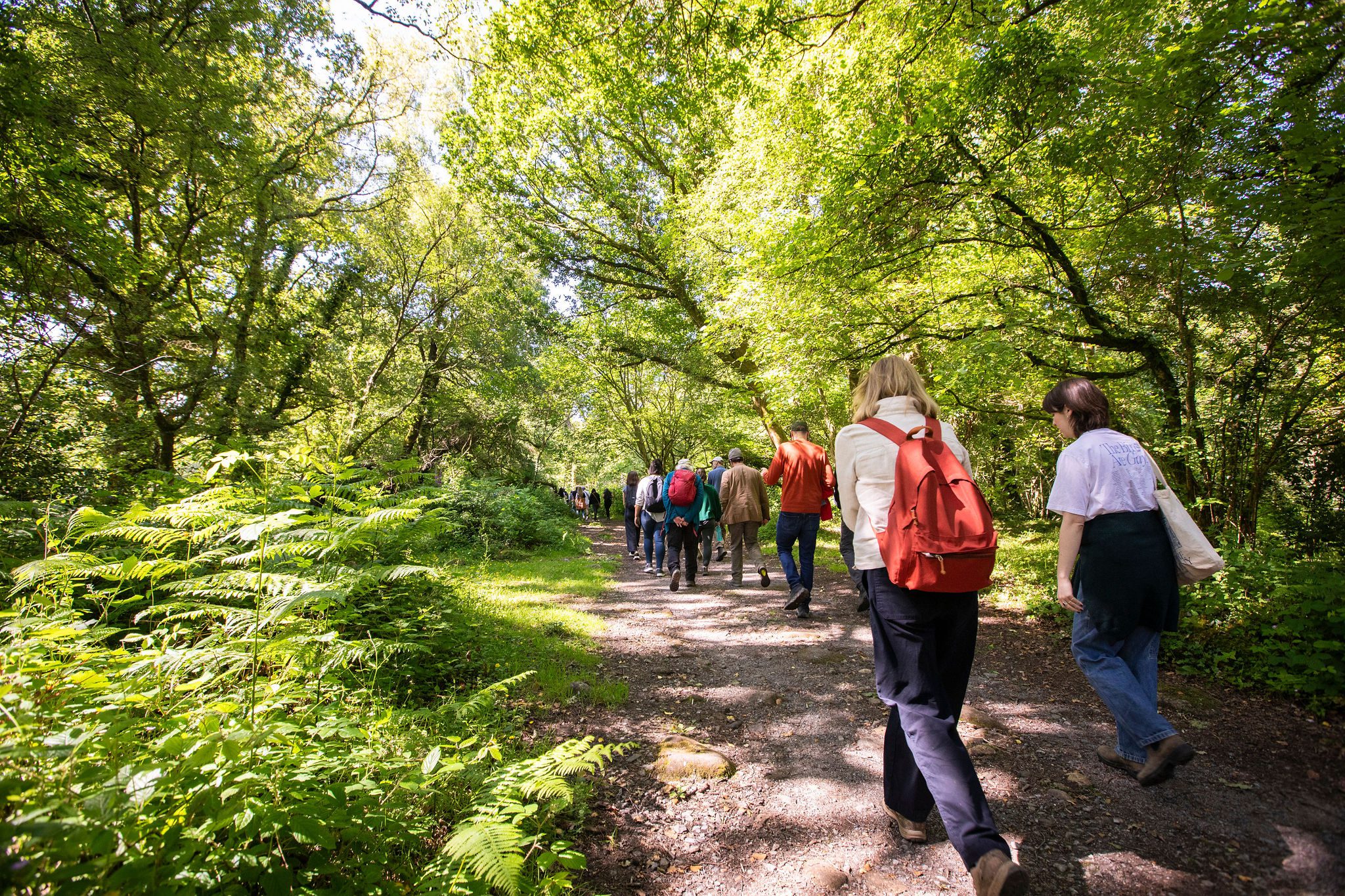
Navigating the wealth of available support and resources for the third sector can sometimes feel overwhelming. That’s why we’ve compiled a short list of practical tools and links on our website directing our funded partners to free guidance and support we think is particularly useful.
What you’ll find on our website
The useful links on our ‘Guidance and resources’ page covers a variety of topics, including:
- Digital skills support – Helping organisations build capacity and confidence in using digital tools effectively.
- Finding funding – Signposting organisations to grants and funding opportunities that align with their needs.
- Growing climate confidence – Resources for organisations looking to understand and respond to the climate and nature crises.
These are just a few areas we focus on, and we are always looking to develop the list.
The right support at the right time
Recently, we’ve added a link to the Crisis Recovery service operated by Community Enterprise (on behalf of a range of support organisations and sector networks).
This is a quick-response service that aims to offer tailored guidance and support to third sector organisations facing serious challenges. Alongside The Robertson Trust, we’ve also provided some funding to help this service respond to rising demand.
Initiatives like this demonstrate how funders and support bodies can work together to strengthen the wider sector. Data and intelligence from such services offer funders a rich source of insight and learning about the sector’s needs, too.
Free support from Inspiring Scotland’s Specialist Volunteer Network
We are also pleased to connect organisations to other funders who offer free resources and expertise.
A fantastic example is Inspiring Scotland’s Specialist Volunteer Network (SVN). This initiative connects third sector organisations with experienced professionals who can provide pro bono support in areas like business planning, HR, marketing, legal advice, and more.
Accessing tailored, expert support at no cost can make a huge difference, whether you’re a small charity looking to refine your strategy or a social enterprise needing guidance on governance. By tapping into this network, organisations can strengthen their operations, enhance their impact, and build resilience for the future.
Help us highlight what’s available
Sharing knowledge and co-investing in effective resources is just one of the ways funders can support third sector organisations to thrive.
Whether it’s signposting to digital skills training, funding opportunities, or expert volunteer support, we want to help organisations find the guidance they need, when they need it.
Explore the useful links here: https://www.williamgrantfoundation.org.uk/guidance-and-resources/.
Please let us know if there are additional tools we could be highlighting – email us at foundation@wgrant.com.

2025 marks my fifteenth year in grant-making. Fifteen years is long enough to see patterns emerge: practices get stuck, ideas are revisited, and sometimes a concept is dusted off, rebranded and presented as something entirely new and groundbreaking. Every so often though, a genuine shift happens – something that feels like progress. For me, the move towards funders providing more unrestricted funding is one of those shifts.
Unrestricted funding is a no-strings donation, for general use by a charity to advance its mission. At the William Grant Foundation, we give this funding whenever we can. Read more about our flexible funding.
This is the kind of practice that you know in your gut is better. It builds trust, it gives funded partners the flexibility they need, and it shifts the focus to what really matters: the work itself. I like to think enthusiasm is infectious, but I know gut feelings are not enough to carry a movement.
For unrestricted funding to stick, we need to prove its value. We need to keep finding meaningful ways to demonstrate that value – ways that resonate not only within our own circles but also with those who fear that de-restricting grants undermines accountability for impact. And we need to develop our understanding of how it works – alongside the other tools in our funder’s toolbox – to support our own learning.
Diving into the human experience
Thankfully, insights and resources shared by organisations like IVAR are helping people to explore how we can learn from and evaluate the difference that unrestricted funding makes. This involves moving away from wordsmithing, stepping out of the spreadsheet and diving into the human experience. Unrestricted funding invites us to think differently about impact – not as a tidy and flashy report of outputs, but as a richer story of transformation, with all its ups and downs.
As I sit here, patiently awaiting the first signs of Spring, it strikes me that unrestricted funding is a bit like tending to the roots of a tree. When you offer unrestricted funding, you’re often supporting the vital systems that allow a whole tree to thrive. The thing about tending to the roots is that a lot of the action happens underground and out of sight. Development isn’t always obvious and evaluating the impact requires you to look for different signs of progress beyond counting the fruit: healthier leaves, a sturdier trunk, a tree that can weather the storms.
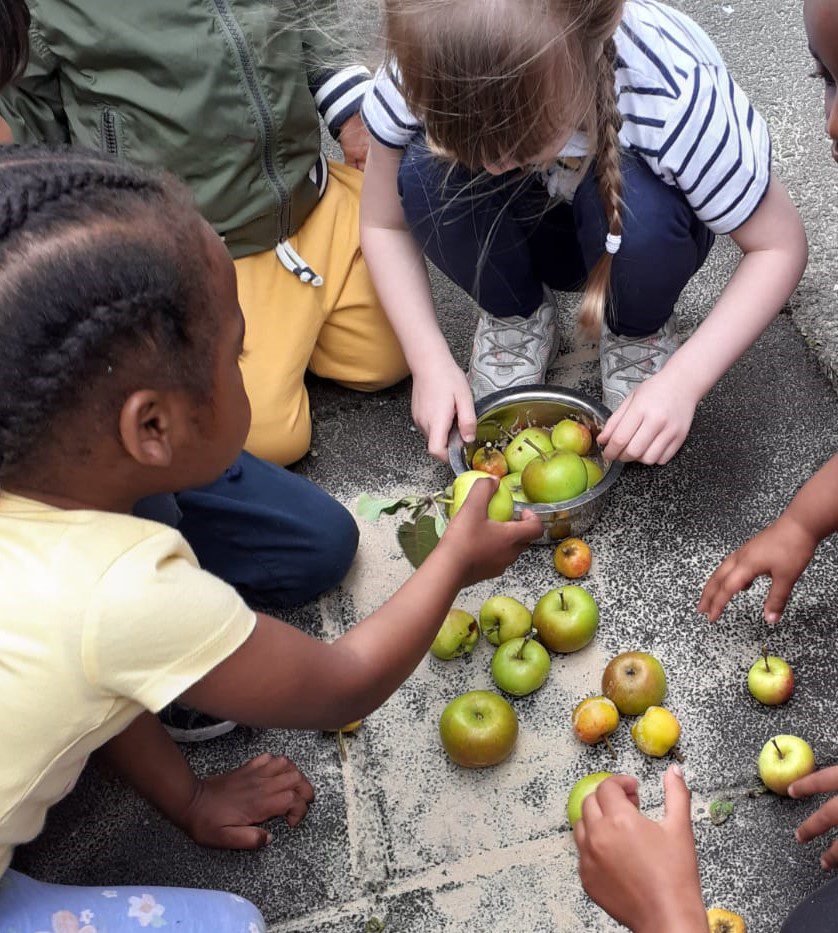
Exploring unrestricted funding
We hope that unrestricted funding helps partners nurture deep, healthy roots. In particular, we hope that it:
- Enables leaders to focus on creativity, investing in their teams and addressing the real challenges in communities.
- Gives breathing room to plan, experiment, and even fail without fear of losing funding.
- Encourages funded partners to tell us honest, important stories, even though they are harder to quantify.
- Shifts power dynamics in a way that pairs trust and flexibility with accountability and learning.
We want to wrestle with questions such as:
- What new possibilities does unrestricted funding unlock for an organisation’s staff and community?
- What does it take for an organisation to be empowered to maximise the potential of unrestricted funding?
- How do smaller and larger unrestricted grants make a difference?
- How does it strengthen the golden (but often invisible) threads that keep the sector together?
- Has it ever changed the trajectory of a third sector leader’s life?
Let’s learn out loud together
Unrestricted funding isn’t about letting go of learning. It is about learning differently and spending more time listening to the messy, magical stories of change happening in the real world. As part of my work at the William Grant Foundation, I will be exploring the impact of our use of unrestricted funding, and I’m just embarking on that journey now. I’ll be speaking with our funded partners and stakeholders to understand if and how it is making a difference, and what we can learn to improve our practice.
I also want to connect with others who are working on this – what questions are you asking to truly capture the value of unrestricted funding, and what insights are emerging? What’s the right balance between storytelling and accountability? If you would like to join an informal conversation on Tuesday 18 February (11:00-12:00 on Zoom), I would love to hear from you.
Join an informal conversation on ‘Unrestricted funding, unlimited learning’ – email foundation@wgrant.com to request the Zoom link.
Photo above: Saheliya
(Subscribe to our podcast on SPOTIFY or APPLE to be sure not to miss any future episodes.)
Hosted by Foundation CEO, Nick Addington, we speak to Ross McCulloch of Third Sector Lab about the open working programme he runs for charities and to Leah Black of EVOC about her experience of working in the open as she develops a new Regenerative Futures Fund for Edinburgh.
If you communicate what you’re learning and doing, you’re an open and transparent organisation – for me that that should just be a default for third sector organisations.
Ross McCulloch, Third Sector Lab
Nick is also joined by other members of the Foundation team to discuss our own commitment to start ‘learning out loud’.
Shownotes
Third Sector Lab’s website is where you can find out more about the programmes they run, including the Open Working and Re-use programme and The Curve – a series of free digital training webinars and online resources for third sector organisations, which is supported by the William Grant Foundation alongside other funders.
You can read Leah’s blog posts about the development of the Regenerative Futures Fund here, including that initial blog that kick-started it all. More about the Regenerative Futures Fund can be found here on EVOC’s website.
Giles Turnbull: The Agile Comms Handbook is an inspiring and short read for anyone wanting to get started with working in the open.

You might have noticed a green badge at the bottom of this website. If you haven’t then do take a look. It indicates our commitment (alongside many other trusts and foundations) to work towards being an open and trusting grant-maker as part of a campaign run by IVAR, the Institute for Voluntary Action Research.
The aim is to encourage funders to make grants in a way that demonstrates confidence in and respect for the organisations they fund and makes life easier for them in the face of the many challenges they currently face.
I am not going to go into detail about our participation in the campaign – there’s a page on this website that shares our open and trusting commitments, actions and plans.
Instead I want to use this space to draw some attention to the importance we place on this as an integral part of the William Grant Foundation’s approach and development, and to:
- help you understand a bit more about what drives us as a funder
- share our open-ness to learn more about how we can improve and do better
- maybe even encourage other funders share more of their own open and trusting journeys
With significant and often increasing scrutiny of charities, often related to less (and therefore more competitive) resources and higher expectations; it is important that funders hold a mirror up to themselves, too, including seeking the views of those they support and acting on what they find.
Reflections of a former fundraiser
I’m not from a funding background. With over 20 years spent working in the third sector and in support of community and voluntary organisations, I come from more of a fund-seeking background.
In most of my previous roles fundraising was for me (like many others) a task built into, or onto, my job. Helping smaller voluntary organisations to apply for funding to enable them to resource their activities and working on continuation or project fundraising for my own organisation.
Back then, would I have recognised any of the 8 open and trusting principles in my dealing with funders?

Don’t waste time
Ask relevant questions
Accept risk
Act with urgency
Be open
Enable flexibility
Communicate with purpose
Be proportionate
I feel I may have reacted fairly sceptically had these ideas came onto my radar… that’s not to say that my past experience with funders has always been difficult or negative. However I recognise now my tacit acceptance of the power imbalance, of the amount of work to tailor the application to each funders’ requirements, and of the sometimes difficult balance of managing funders’ reporting expectations vs getting on and delivering the work.
I probably moaned and grumped to colleagues, and we’d have shared our collective pain points.
Would I have had an idea to feed these feelings and thoughts back (constructively) to a funder? No, probably not. I don’t remember a route to do so, and I wasn’t going to raise my organisation’s head above the parapet.
At one time I do clearly remember a funder staff member who flipped a switch and created a bit of a lightbulb moment for me. They said: ‘it’s our job to give money away – if we don’t then we are not doing our job’. It was a significant revelation at the time – looking back understanding this shifted the dynamic in my head a little. And so here I think it is important to acknowledge that funders have been thinking about and making progress on how they can do things better for a lot longer that I have been in this space.
Reflections from a funder perspective
When I started with the Foundation, I very much had the above statement in mind – but very quickly this understanding jumped forward in a big way with the addition of one small word:
“It’s our job to give money away well – if we don’t then we are not doing our job”
I know this is true because three months after joining the Foundation in 2018 I wrote a short piece for our Management Committee to share some of my early reflections – I had not looked at it again until writing this, but this is what I wrote:
“My connections with grantees and Group members have been really valuable in developing my understanding of:
– The nature of the relationship the Foundation seeks to have with grantees – adjectives that come to mind are trusted, evolving, meaningful, honest, light touch, family – The value of our funding in terms of our approach and funding ‘type’ – adjectives here include enabling, bridging, flexible, consolidating, risk-taking, sustaining.
I am still excited by the way! The open and trusting journey and community is one that has, and continues to, turn up the dimmer switch for me on that early, pre-Foundation, lightbulb moment. Not only does it help us to continue to develop our learning about how to be a better funder and partner to the organisations we support, it also allows us to contribute our own experience of this to a wider group of funders in the hope we can add value more widely (here’s an example).
IVAR’s leadership and facilitation of this collective approach – where we can scratch our heads, learn and share in a safe space is hugely valuable. Have we cracked it? Absolutely not – the improvement journey is not one with an end – and here at the Foundation we do like a cycle.

We call this our strategy for effectiveness cycle.
Going forward
We are making changes – you can read more about some of these in our main Open and Trusting webpage that we will update as we go. Changes include our Feedback Project introduced in 2021, which offers a way for our grant-holders to tell us what they think and to rate our performance (More to come on this in another post).
But back to my original question is it time for funders to start holding themselves to account more critically? It’s not time to start – it is time to keep going and to ensure that we continue to provide easy ways for those we support to tell us what they think and to make this feel less risky to do.
The open and trusting initiative will help us to continue this and we hope our commitments demonstrate we are genuine in our effort to listen, learn and improve.
